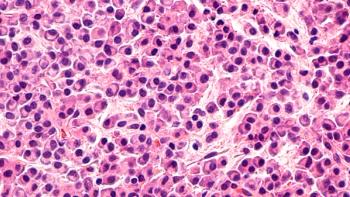
An expert in multiple myeloma spoke about the most exciting research to come out of 2020 and what research he hopes to see in 2021.

Your AI-Trained Oncology Knowledge Connection!


An expert in multiple myeloma spoke about the most exciting research to come out of 2020 and what research he hopes to see in 2021.

In addition to a concerning trend of increased rates of esophageal adenocarcinoma noted over the last 4 decades, this study also found that the proportion of those with advanced disease at presentation continues to rise for patients younger than age 50.
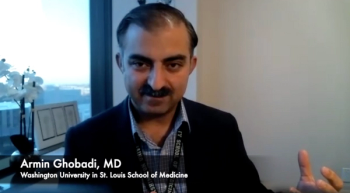
An expert in the treatment of diffuse large B-cell lymphoma explained some of the exciting advances in treatment and hypothesized what comes next after the 2020 ASH Annual Meeting & Exposition.
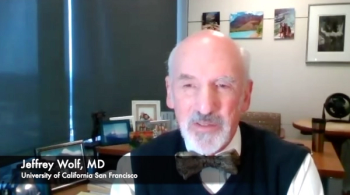
Jeffrey Wolf, MD, explained how studies presented at the recent 2020 ASH Annual Meeting & Exposition did not report what percentage of patients achieved minimal residual disease negativity with therapy for multiple myeloma, and that the future of phase 3 trials should focus on this status in patients.

ARX788 received a nod from the FDA early in 2021 based on promising preclinical and phase 1 trial data demonstrating its efficacy in patients with HER2-positive breast cancer following progression on other agents.

The combination of tiragolumab and atezolizumab (Tecentriq) was granted breakthrough therapy designation based on promising efficacy and safety data observed in the phase 2 CITYSCAPE trial.

The latest episode of CancerNetwork’s podcast features an exclusive conversation with an industry thought leader regarding smoking cessation and its impact on patients with cancer.

Nivolumab was previously granted accelerated approval by the FDA for the treatment of patients with small cell lung cancer (SCLC) whose disease had progressed after platinum-based chemotherapy and at least 1 other line of therapy, but phase 3 trial results led to a decision to withdraw the indication.
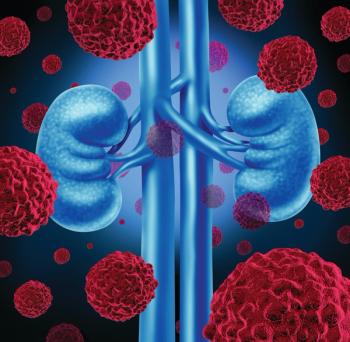
Combination treatment with telaglenastat (CB-839) and cabozantinib (Cabometyx) did not meet the study’s primary end point of improved progression-free survival versus cabozantinib alone in patients with advanced or metastatic clear cell renal cell carcinoma.

Under the FDA’s Real-Time Oncology Review Pilot Program and Project ORBIS, the FDA is reviewing a supplemental new drug application for lorlatinib (Lorbrena) as a first-line treatment for patients with ALK-positive metastatic non–small cell lung cancer.
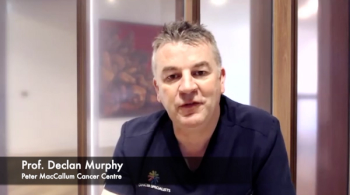
Murphy discussed the secondary end point of equivocal findings on PSMA PET/CT from the proPSMA study presented at the SUO 21st Annual Meeting.
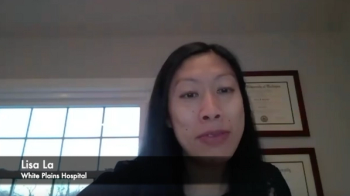
The director of clinical research in the Center for Cancer Care at White Plains Hospital spoke about the implications of a study which evaluated the impact of diabetes in patients with multiple myeloma.

An expert in urologic oncology seeks to answer further questions regarding the use of telemedicine for this patient population.
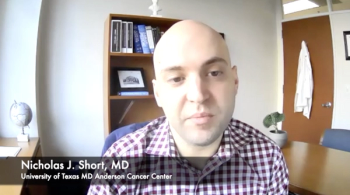
Short described the importance of the time point of CR outcomes for patients treated as part of an ALL study presented at the 2020 American Society of Hematology Annual Meeting & Exposition.
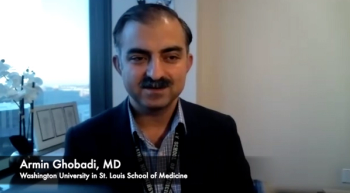
Ghobadi expressed caution about interpreting efficacy data from a phase 1 pilot study presented at the 2020 ASH Annual Meeting.

Wolf touched on the future of MRD and the potential development of more sensitive measuring techniques for patients with multiple myeloma.

The breast cancer expert discussed the latest developments in breast cancer research and what she hopes the next year will offer this patient population.
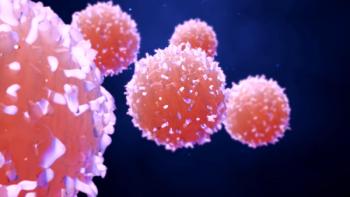
Guido Lancman, MD, sought to evaluate the effect of intravenous immunoglobulin on infections in patients with multiple myeloma receiving daratumumab.
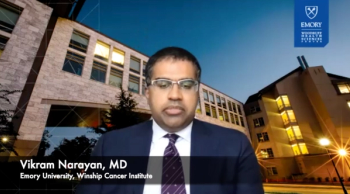
Vikram Narayan, MD, details the little-known fact that tobacco cessation is a leading preventative strategy of bladder cancer recurrence.
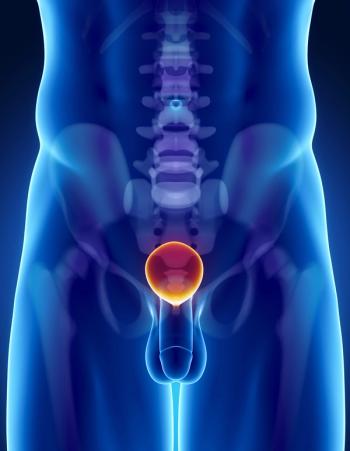
Treatment with olaparib versus physician’s choice of standard therapy led to a significantly longer duration of overall survival in patients with metastatic castration-resistant prostate cancer who had tumors with at least 1 alteration in BRCA1/2 or ATM and whose disease had progressed during previous treatment with a next-generation hormonal agent.
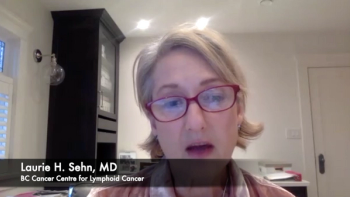
The preliminary findings of the extension arm of the phase 1b/2 GO29365 study confirmed the benefits and tolerability of polatuzumab vedotin plus bendamustine and rituximab for patients with diffuse large B-cell lymphoma.
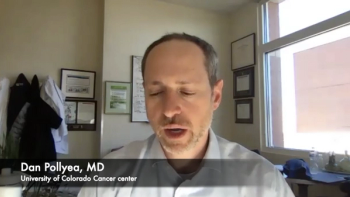
The leukemia expert discussed the clinical implications of findings demonstrating improved response for patients with acute myeloid leukemia with IDH mutations.

Declan Murphy, MB, BCh, shares his thoughts on the potential for prostate-specific membrane antigen PET/CT to impact outcomes for patients with localized and high-risk prostate cancers.

Among women with early-stage triple-negative breast cancer who received standard adjuvant treatment, low-dose capecitabine maintenance therapy for 1 year resulted in significantly improved disease-free survival rates compared with observation.
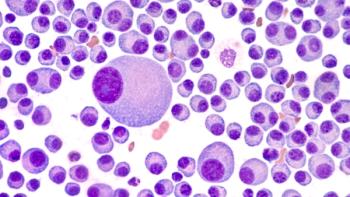
Clinician Lisa La sought to evaluate differences in baseline characteristics, treatment patterns, and survival outcomes in patients with diabetes versus those without who were enrolled in the CONNECT MM Registry.
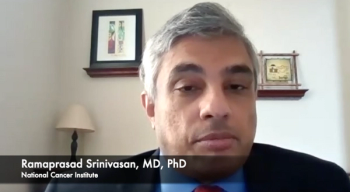
Study results indicated that the small molecule HIF-2α inhibitor MK-6482 induced positive results in patients with certain Von Hippel-Lindau disease–associated solid tumors.
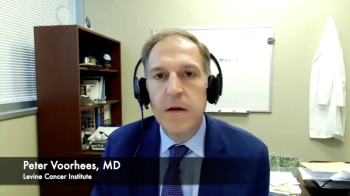
The myeloma expert discussed the importance of sustained MRD negativity for patients with multiple myeloma treated with daratumumab (Darzalex).
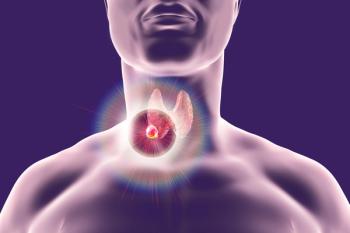
“Although previous trials demonstrated that the prior version of the DNA-RNA test was more specific than the prior version of the RNA test, the current molecular test techniques have no statistically significant difference in performance,” wrote Masha J. Livhits, MD, and colleagues.
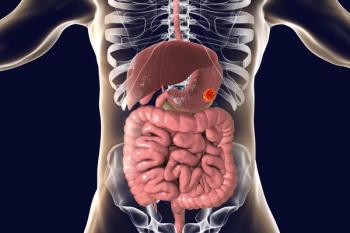
The medical oncologist at the Mayo Clinic in Phoenix, spoke about the progress seen in gastrointestinal cancer research in 2020, as well as what improvements he hopes will occur in 2021.
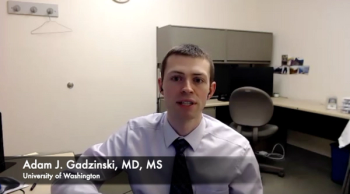
Study results revealed the impact of a rurally focused telemedicine program on patient outcomes.